If Your Plants Are Getting Eaten, This Kitchen Staple Could Save Them
Keep pests away with this item you most likely already have on hand.
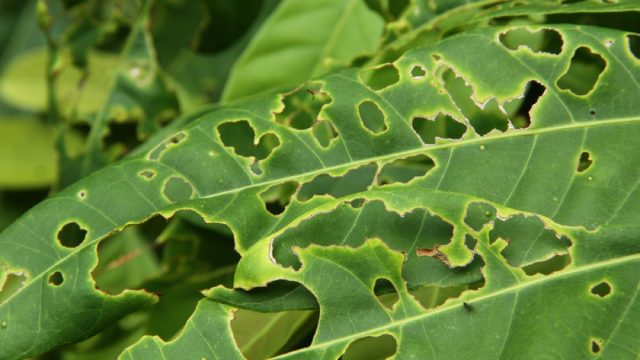
Keeping your houseplants or garden thriving is no easy feat. Diagnosing plant issues can be tricky, whether they're drooping or dying, and it can be a full-time job trying to revive them. But if your plants have holes in their leaves, you can be pretty sure of the culprit. Bugs or pests eating your plants is always cause for concern. Thankfully, gardeners have been testing methods to keep pests away and make sure your plants stay protected. Read on to find out how to use one fragrant kitchen commodity as a pesticide.
READ THIS NEXT: 5 Easy Hacks to Save Your House Plants That Gardeners Swear By.
Here's why bugs might be snacking on your plants.
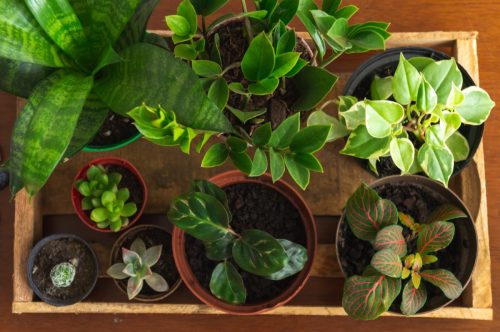
When bugs start feasting on your houseplants, it's both frustrating and disheartening. According to Clemson Cooperative Extension Home & Garden Information Center, your plants are most often affected by pests when they've been outside for the summer or if they are plants that you've just purchased. The first step when you notice any bug is to isolate your plant from any leafy neighbors and keep it away until the pests have vacated.
If you catch the issue early enough, you may be able to pick the bugs off by hand. If it's gotten more serious, you might have to make alternative plans. Try this trick gardeners swear by to save your houseplant from unfriendly infiltrators.
Plant experts call this vegetable "nature's gift to gardeners."
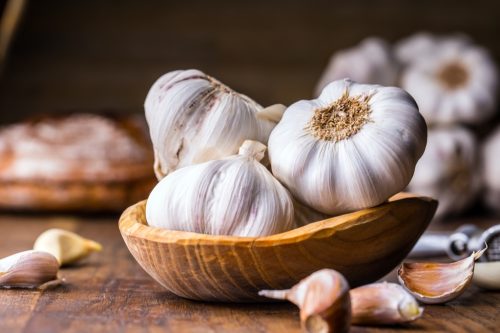
If your plant has fallen victim to pests, something in your fridge or on your countertop might save the day. According to Dengarden, you can use garlic to stop infestations. Set aside that chemical pesticide and instead opt for a garlic-based spray. This method is both organic and affordable, and it can keep pests like aphids, whiteflies, cabbage worms, moths, ants, and termites away when sprayed on foliage.
Per Dengarden, insects don't like the smell of garlic—just like some people—and the active sulfur compounds are the key deterrent. As an added bonus, you can also use garlic preventatively as a natural fungicide, as the sulfur also helps to kill different fungal and mildew infections.
For more practical advice delivered straight to your inbox, sign up for our daily newsletter.
Here's how to make your own garlic spray.
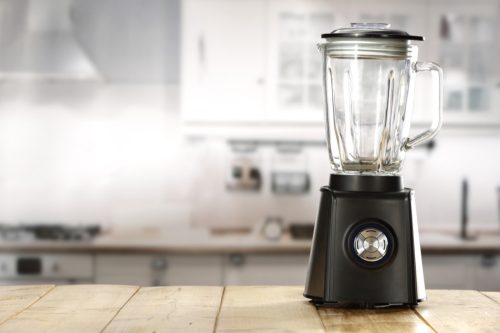
You'll be happy to learn that making a garlic solution is relatively simple. Start by blending a head of fresh garlic in a blender or food processor until you reach a smooth consistency (you can also do this by hand with a mortar and pestle). Dengarden then recommends adding two cups of water and continuing to blend. Once the mixture is complete, pour it into a glass container and store it covered in a dark space for 24 hours. Next, strain all of the solids and dilute with additional water until you have a full gallon.
The solution can be used as your weekly pesticide.
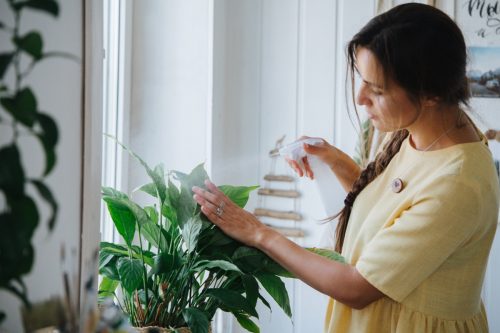
To get rid of those pesky pests, spray the top and bottom of each infested leaf once a week. You can up this to twice a week if you are using this on outdoor plants and rain is in the forecast, according to the Gardening Know How. If you're using this on any fruits or vegetables, be sure not to spray close to harvest time, or else you might have garlic-flavored zucchini.
Also in your outdoor garden, the Gardening Know How suggests using garlic when intercropping—meaning planting garlic among other crops. Conveniently enough, garlic also deters rats, rabbits, mice, elk, and deer, but they require a little bit of spice. When making your outdoor garlic solution, add one jalapeño or a tablespoon of cayenne pepper and apply it to your plants once every two weeks or after rain. To keep voles away, pour a barrier around your garden plants (with no gaps) once every two weeks.
Plant experts warn to use garlic in moderation, however. Overusing this technique can actually kill helpful soil microbes, Dengarden says.
READ THIS NEXT: If Your Plants Are Drooping, This Bathroom Product Will Revive Them.





















